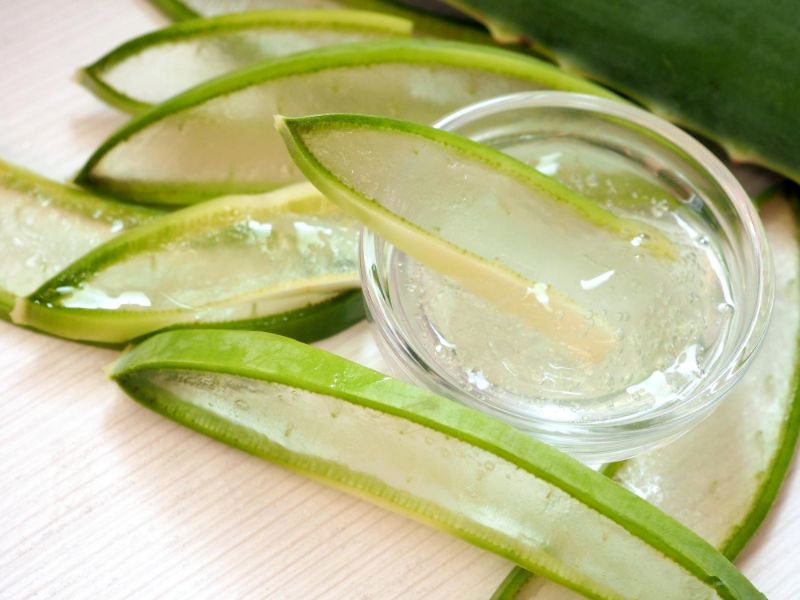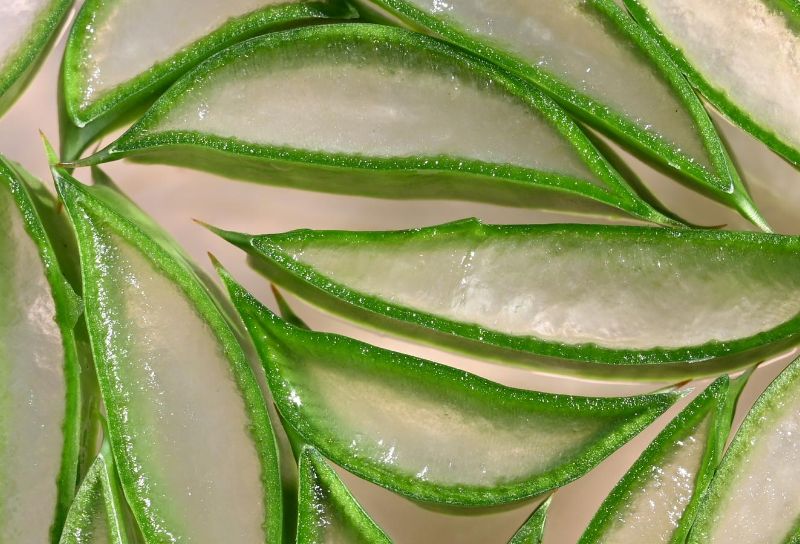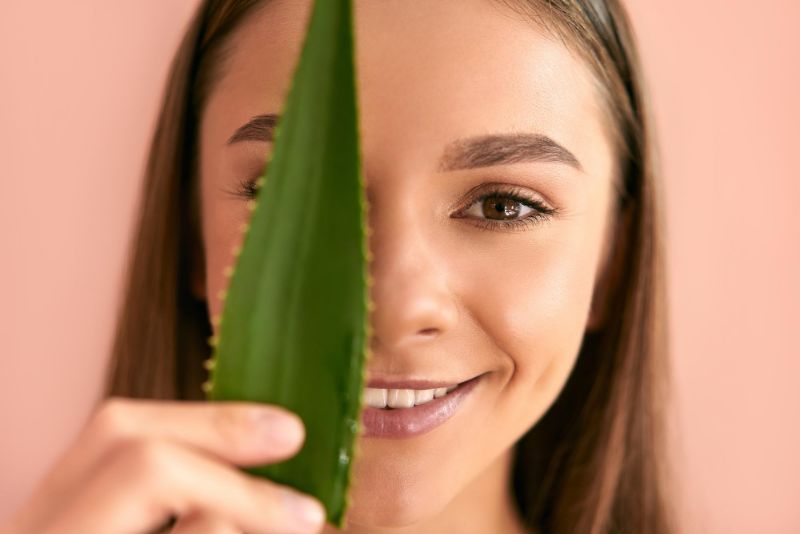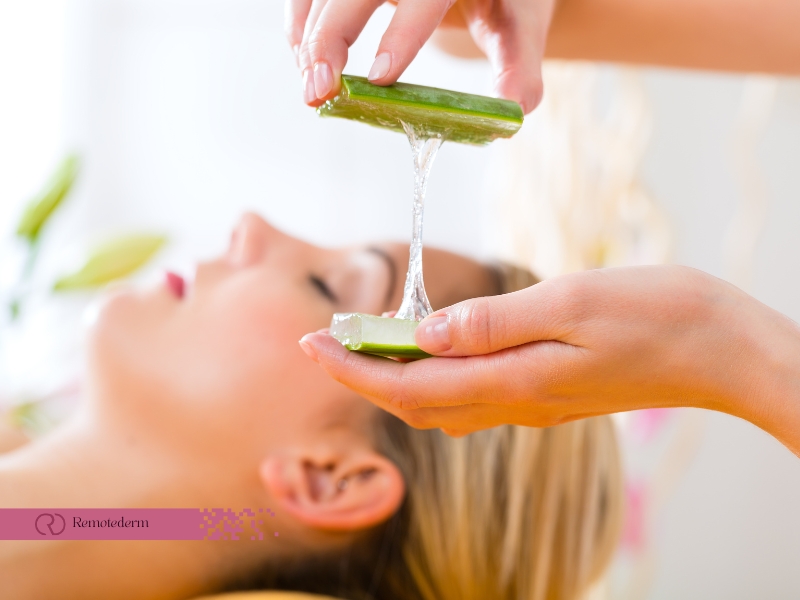Unlocking the potent influence of aloe vera on acne is like finding a secret weapon for clearer, healthier skin. Acne can be really frustrating with its pesky pimples, blackheads, and redness. However, in this guide, we’ll explore how aloe vera can make a big difference if you’re dealing with acne. Whether you’re a skincare pro or just looking for ways to tackle breakouts, this article will provide a professional answer to everyone’s question: Does aloe vera help acne treatment?
Understanding Acne
Before delving into the incredible benefits of aloe vera, let’s first define acne and why it occurs. Acne is a common skin condition that can affect people of all ages. It occurs when hair follicles become clogged by dead skin cells and oil, resulting in the formation of whiteheads, blackheads, and pimples. While several factors, such as genetics and hormonal changes, contribute to acne, finding the right treatment can make all the difference.
Aloe Vera for Acne: How Does it Work?
Aloe vera, a succulent plant with soothing and healing properties, has been used for centuries in traditional medicine. Its gel-like substance contains a rich combination of vitamins, minerals, enzymes, and amino acids, making it a versatile remedy for various skin issues, including acne.
- Anti-Inflammatory Properties: Acne often involves inflammation of the skin, leading to redness, swelling, and discomfort. The anti-inflammatory properties of aloe vera can help alleviate these symptoms. It contains compounds like acemannan, which can calm irritated skin and promote healing.
- Antibacterial Effects: A key factor in acne development is the overgrowth of acne-causing bacteria, particularly Propionibacterium acnes. Aloe vera has natural antibacterial properties that can help inhibit the growth of these bacteria, reducing the risk of new breakouts.
- Moisturization: Aloe vera is an excellent natural moisturizer. It hydrates the skin without clogging pores, which is crucial for those with acne-prone skin. Proper hydration can help maintain skin health and reduce the production of excess oil.
- Scar Reduction: Aloe vera can aid in the healing of acne scars and blemishes. Its ability to stimulate collagen production can improve the skin’s texture and minimize the appearance of scars over time.
- Wound Healing: Aloe Vera accelerates the skin’s natural healing processes, potentially aiding in the faster recovery of acne lesions.
How to Apply Aloe Vera on the Face for Acne?
Now that we understand the potential benefits, let’s explore how to incorporate Aloe Vera into your skincare routine for acne management:
- Aloe Vera Gel Products
Many skincare products, such as creams and gels, contain Aloe Vera as a key ingredient. Look for products specifically designed for acne-prone skin.

- Aloe Vera Masks
Make your own face masks by combining Aloe Vera gel with other natural ingredients such as honey, tea tree oil, or turmeric. These combinations can boost the efficacy of Aloe Vera in acne treatment.
- Aloe Vera Juice
Drinking Aloe Vera juice can also be beneficial, as it helps detoxify the body and may improve overall skin health.
- Overnight Treatment
For a more intense treatment, consider leaving Aloe Vera gel on your face overnight. Ensure it has fully absorbed into your skin before heading to bed.
- Raw Aloe Vera Gel
The simplest way is to extract the gel directly from an Aloe Vera leaf. Cut a leaf, extract the gel, and apply it directly to the affected areas. Leave it on for about 15-20 minutes, then rinse off with lukewarm water.

Step-By-Step Aloe Vera Acne Treatment
Using aloe vera for acne is relatively simple, and you can choose from various methods to suit your preferences. Here’s a step-by-step guide on how to apply aloe vera to your face for acne:
- Select a High-Quality Aloe Vera Gel: Look for 100% pure aloe vera gel without added fragrances or chemicals. You can extract gel directly from an aloe vera plant or purchase a reputable commercial product.
- Cleanse Your Face: Start with a clean face. To remove dirt, oil, and makeup, use a gentle, sulfate-free cleanser.
- Patch Test: Before applying aloe vera to your entire face, perform a patch test on a small area to check for any adverse reactions or allergies. Wait for 24 hours to ensure there are no issues.
- Apply Aloe Vera Gel: Apply a small amount of aloe vera gel to your face evenly. Massage it into your skin gently in circular motions. Pay extra attention to acne-prone areas.
- Leave it On: Allow the aloe vera gel to absorb into your skin for at least 20-30 minutes. For maximum benefit, leave it on overnight.
- Rinse or Moisturize: After the allotted time, you can either rinse your face with lukewarm water or apply your regular moisturizer if needed. Aloe vera itself is a good moisturizer, so you may not require an additional product.
For effective guidance on using Aloe Vera for acne, consulting a dermatologist is essential. They can assess your skin, recommend suitable Aloe Vera products, and ensure compatibility with your skincare routine. Additionally, you can conveniently access dermatological advice through telemedicine platforms such as RemoteDerm to receive online acne prescriptions anywhere in Canada, making expert skincare guidance more accessible than ever.
How Long Does Aloe Vera Take to Work on Acne?
The effectiveness of aloe vera on acne varies from person to person and depends on several factors, including the severity of the acne and your skincare routine. Some people may experience improvements within a few days, while others may need several weeks to notice significant changes.

Consistency is crucial when using aloe vera for acne. It’s not a quick-fix solution, but with regular application, you can expect to see gradual improvements in acne inflammation, redness, and overall skin condition. Keep in mind that aloe vera works best as a complementary treatment alongside other acne management strategies.
Does Aloe Vera Help Acne? Final Thoughts
In conclusion, harnessing the remarkable potential of Aloe Vera for acne can be a game-changer in the quest for clearer, healthier skin. Acne can be a persistent and frustrating condition, but understanding how Aloe Vera works as a skincare ally can make a significant difference. Its anti-inflammatory, antibacterial, moisturizing, scar-reducing, and wound-healing properties offer multifaceted benefits for acne-prone skin.
Incorporating Aloe Vera into your skincare routine is easy, whether through commercial products, homemade masks, or raw gel application. To ensure the best results and tailor your approach, consulting a dermatologist is highly advisable. Moreover, the convenience of telemedicine platforms, offering online acne prescriptions, makes expert skincare guidance more accessible than ever.
Remember that Aloe Vera isn’t a quick fix; consistent use alongside other acne management strategies is key to achieving lasting results. The journey to clearer skin may vary in duration, but with patience and persistence, Aloe Vera can be a powerful ally on your path to acne-free confidence.
FAQs
- Can I use Aloe Vera along with other acne treatments?
Yes, Aloe Vera can complement other acne treatments, but consult a dermatologist for guidance on combining products.
- Can Aloe Vera completely cure acne?
Aloe Vera can help manage acne by reducing inflammation and bacteria, but it may not provide a complete cure for severe cases.
- Can Aloe Vera cause skin allergies or irritation?
While it is uncommon, some people may experience allergic reactions or skin irritation when using Aloe Vera. Always run a patch test.
- Can I use Aloe Vera with makeup on my face?
Yes, you can apply Aloe Vera gel under makeup as a hydrating base, but allow it to absorb fully first.
- Can Aloe Vera be used to prevent future acne breakouts?
Aloe Vera’s antibacterial properties can help reduce the risk of new acne breakouts when used consistently.
